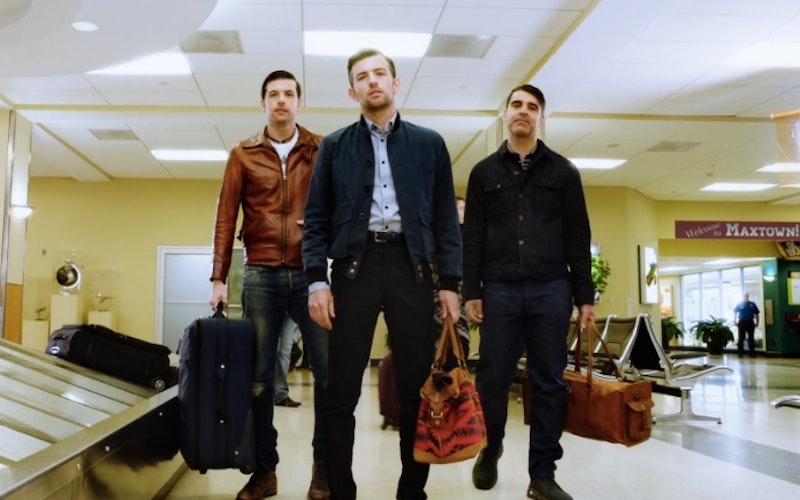
Music
The Avett Brothers and the world’s True Sadness
Liz Wann •
It was my first time seeing them in concert. The place was a box of a venue, smelling of wood and beer, with dim lighting. The X on the back of my hand, made with a Sharpie, told the bartenders, "Don't serve this girl alcohol." It didn't matter. I wasn't there for alcohol. I was there for two, stereotypical Jesus lookalikes whose voices cracked as they yelled and yodeled, then settled down into a peaceful croon. The Avett Brothers were raw, grungy folk artists with tender, lyrical rhymes. They could make you dance and make you cry.
The Avett Brothers have come far since they were underground and I was underage. They recently released their ninth album, titled True Sadness. Since gaining popularity, Scott and Seth Avett have polished their raw musical edges while maintaining their folk ballad lyrics. Many of the songs on True Sadness tell stories with similar themes: fear, disappointment, hardship and redemption. Whether it is set to an upbeat twang, like “Divorce Separation Blues,” or to the gentle strums of “No Hard Feelings,” the brokenness of this world is made clear. The lyrics sing truth about a perfect world gone wrong. Once, perfect peace filled our souls. Now we battle with fear and, as the Avett Brothers phrase it, "...this evil inside me. I step out my front door and I feel it surround me."
We are reminded that what God declared as good has been smudged with dirt.
When the brothers sing, "For life and its loveliness. And all of its ugliness," we are reminded that what God declared as good has been smudged with dirt. So now we have both light and dark; lovely and ugly at the same time. We are not fully what we will be yet. And as the Avett Brothers tell us on “Smithsonian,” with a Southern drawl, “Life ain't forever and lunch isn't free. Loved ones will break your heart... Lines on my face, my teeth are not white. My eyes do not work and my legs don't move right.” We too feel the brokenness of our mortal bodies inching towards death, the relational pains in our heart and the strain of toil on our will. Because we are redeemed, but living in a world groaning in anticipation of restoration, we will experience true sadness. In the title song, The Avett Brothers reference alcoholism, rehab and the porn industry, then sing, "No one is fine. Take the time to peel a few layers and you will find true sadness."
We don't have to listen to the latest Avett Brothers album to know something is wrong with us and our world. Even as Christians, though we are declared righteous in Christ, we are still being made righteous. We've been given eternal security and the power of the Holy Spirit working in us, but we still trudge through the muck of life and our own sin. In Tabletalk magazine, Daniel Dunlap references the idea of "already, but not yet,” saying the phrase "describes the tension between the benefits of redemption already experienced in this life and those benefits which await us at the consummation."
Just because we have the prize doesn't mean we don't run the race. And just because we're still imperfect sinners doesn't mean we can't have victory over sin. For all the broken reality in True Sadness, the album retains a theme of redemption. The opening song carries us into a confident lyric and melody, promising, "There is always a light." Followers of Christ can join in with the folk-pop of another song on the album, “You Are Mine." After all we know, as The Avett Brothers sing, "Where we are is not so far from where we're gonna be."
Topics: Music, Culture At Large, Arts & Leisure, Theology & The Church, Theology